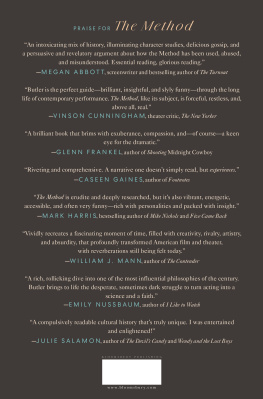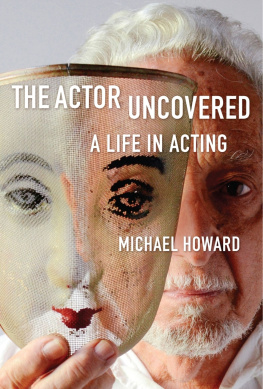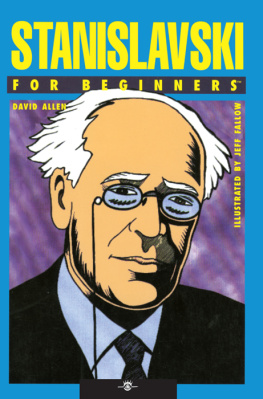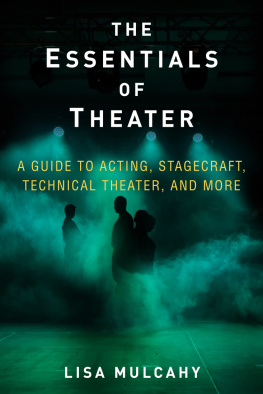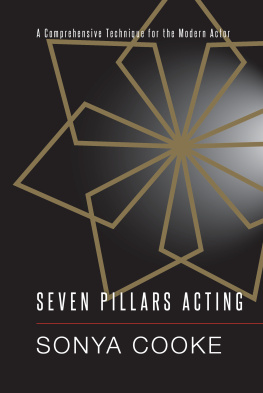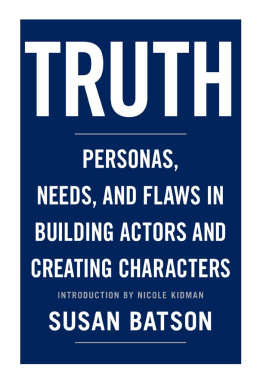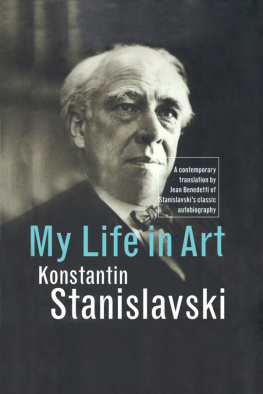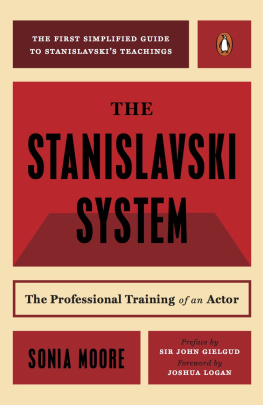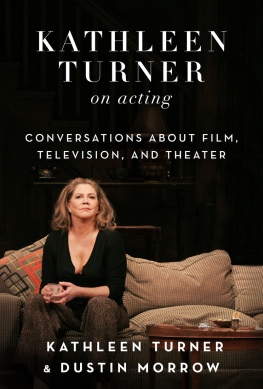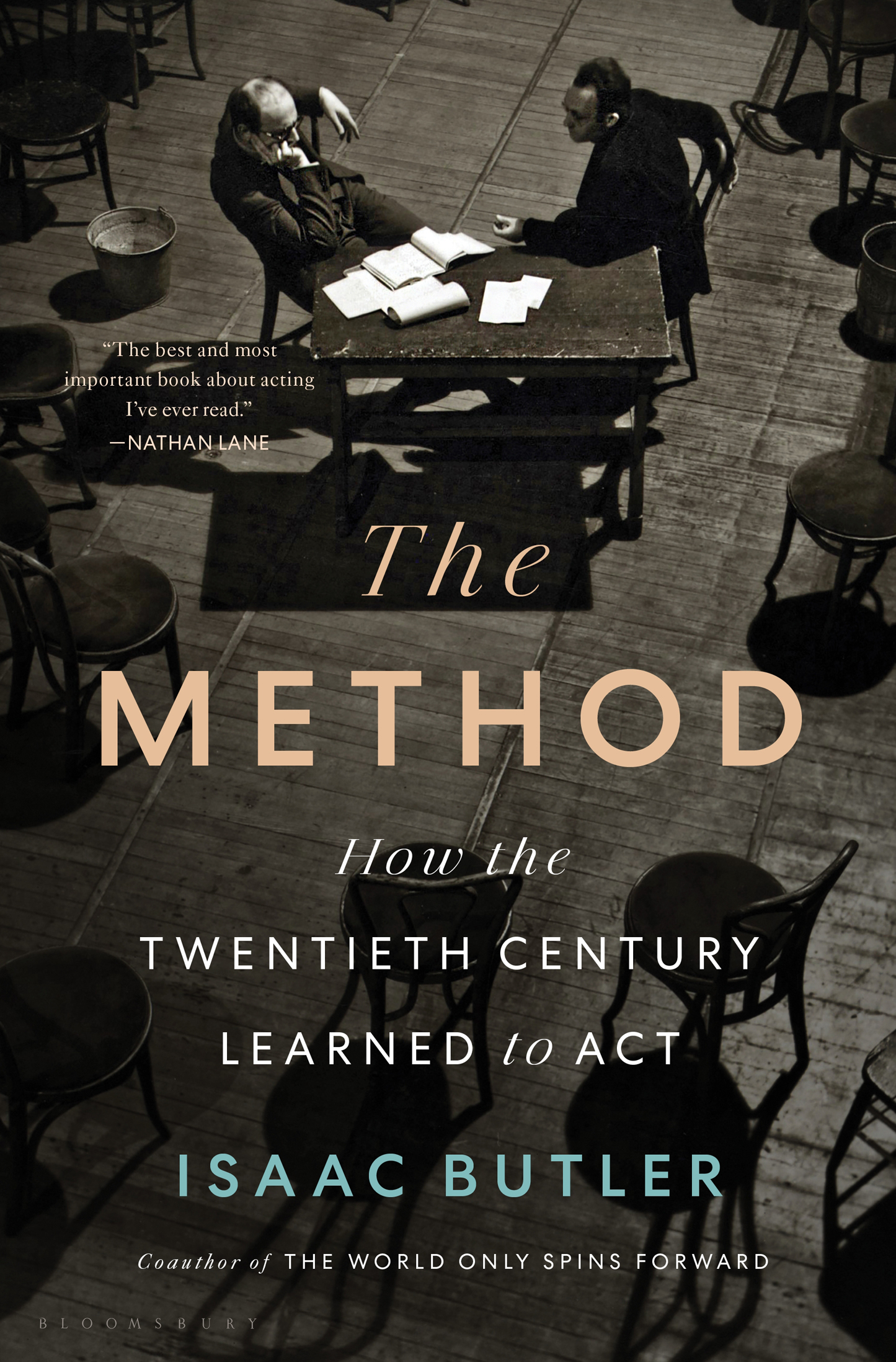Contents
Guide
Pagebreaks of the print version
Praise for The Method
An intoxicating mix of history, illuminating character studies, delicious gossip, and a persuasive and revelatory argument about how the Method has been used, abused, and misunderstood. Essential reading, glorious reading.
Megan Abbott, screenwriter and bestselling author of The Turnout
In The Method , Isaac Butler makes the compelling case that Method acting is one of the Big Ideas of the twentieth century. Accordingly, The Method is sure to be one of the Big Books on acting of the twenty-first. As a director, critic, and, as he tells here, a former Method-struck young actor, Butler is the perfect guidebrilliant, insightful, and slyly funnythrough the long life of contemporary performance. The history of the Method is, after all, a history of intensity: Here, alongside a bustling ensemble of famous namesStanislavski and Strasberg, Adler and StreepButler pulls its virtues and vexing contradictions down from the stage and onto the page. The Method , like its subject, is forceful, restless, and, above all, real.
Vinson Cunningham, theater critic, The New Yorker
Isaac Butler tells the epic story of how a Russian-born system of modern acting transformed American theater and cinema in a brilliant book that brims with exuberance, compassion, andof coursea keen eye for the dramatic.
Glenn Frankel, author of Shooting Midnight Cowboy
A riveting and comprehensive journey alongside some of the most influential artists to have ever created for the stage and screen. Isaac Butler reinstates humanity into the discourse surrounding the oft-misunderstood Method through a compelling narrative one doesnt simply read, but experiences .
Caseen Gaines, author of Footnotes
How did what we think of as great acting make the journey from Russia to America, from the nineteenth century to the twentieth, from the classroom to the rehearsal room to the stage to the screen? In The Method , Isaac Butler charts this complex history brilliantly. His book is erudite and deeply researched, but its also vibrant, energetic, accessible, and often very funnyrich with personalities and packed with insight.
Mark Harris, bestselling author of Mike Nichols and Five Came Back
Elegantly written, filled with remarkable detail and incisive commentary, Isaac Butlers sweeping historical epic is the literary equivalent of an irresistible binge-watch, propelled by emotional twists and turns, surprising cliffhangers, and a cast of the greatest actors, directors, writers, and teachers of the last two centuries. The fact that he has done all that while also writing what I think is the best and most important book about acting Ive ever read is a major achievement. This is an essential book for anyone in the acting profession as well as for anyone whos ever wondered How did they learn all those lines?
Nathan Lane
The Method vividly recreates a fascinating moment of time, filled with creativity, rivalry, artistry, and absurdity, that profoundly transformed American film and theater, with reverberations still being felt today.
William J. Mann, author of The Contender
A rich, rollicking dive into one of the most influential philosophies of the century, the Method. Tracing schisms, experiments, breakthroughs, and breakdowns, Butler brings to life the desperate, sometimes dark struggle to turn acting into a science and a faith.
Emily Nussbaum, author of I Like to Watch
Isaac Butler has turned a brilliant concept into a compulsively readable cultural history thats truly unique. I was entertained and enlightened!
Julie Salamon, author of The Devils Candy and Wendy and the Lost Boys

To Anne, for more than words can express
BY THE SAME AUTHOR
The World Only Spins Forward: The Ascent of Angels in America with Dan Kois

CONTENTS
The great secret for moving the passions is to be moved ourselves; for the imitation of grief, anger, indignation, will be often ridiculous, if conforming only our words and countenance, our heart at the same time is estranged from them.
Quintilian, First Century C.E.
Were actors. Were the opposite of people.
The Player King, ROSENCRANTZ AND GUILDENSTERN ARE DEAD , Tom Stoppard
Acting is a curious thing. Practically anyone who watches Hollywood movieswhich is to say pretty much everyonespends a staggering amount of time talking and thinking about actors. We know intimate details of their private lives. We look to them to speak out about the issues of the day. We evaluate them constantly and festoon the better ones with a trunkload of different prizes. Yet when pressed to explain what good acting actually is , we usually struggle. Even we critics, who are supposed to be in the discussing-art-in-depth business, often rely on a basic shorthand of convincing or bravura or charismatic or well observed. Sorting out what makes for a good performance can be like struggling to escape quicksand without the aid of a handy tree branch. Instead, most of us are more likely to follow Justice Potter Stewarts famous adage about obscenity: We know good acting when we see it.
But how do we see it? Acting is contextual, of course. Moonstruck wouldnt work without Nicolas Cage, but if you yanked his performance out of it and plunked it down in The Remains of the Day , the result would be risible. Nevertheless, most of us carry around a set of assumptions about what makes for good acting, independent of whatever we happen to be watching at that moment. We want performances that feel lived in ones in which actors reveal characters psychology through subtle gestures and little facial expressions rather than indicating what theyre thinking and feeling. We want emotions that appear genuinely felt, not technically re-created. We want actors to remain in character and not to comment on what theyre doing. In most cases, they shouldnt really seem aware of the audience at all. We want to feel as if the actors have on some level become the characters, collapsing the distance between the role on the page and themselves. Unless the style of the project calls for something radically different, what we crave is authenticity. We want psychological and emotional truth.
Take, for example, an actor like Frances
This was true even in her first film role, as Abby in Blood Simple , a part she landed shortly after graduating from the Yale School of Drama. Abby is a deceptively difficult character to play; shes the center of the film, the battleground over which the male characters fight, but she has few lines. Instead, the role calls for constant reacting. The camera lingers on her face as she tries to piece together what is happening and how she should respond. Its a role with few of the big moments we usually associate with great performances. An actor possessed with a keener sense of vanity would try to call attention to all of this, but McDormands performance is clean, simple. She serves the material, and she makes Abby feel like a real human being.
By McDormands own account, she struggled playing Abby. She had never been on a film set before. The technical demands of performing in that environment are very different from those of the stage. You must position your body precisely for the camera, which is in some ways your real scene partner. Theres also a jigsaw puzzle aspect to acting on film: In a play, you perform the role from beginning to end every night. In a film, you usually shoot a role out of order, and you are often called upon to hit emotional highs on command again and again and again.

